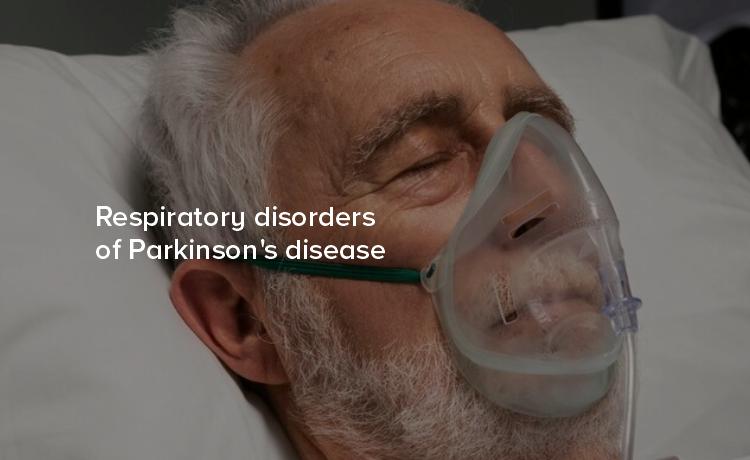
Parkinson's disease (PD) is commonly associated with its motor symptoms, such as tremors, rigidity, and bradykinesia. However, as the understanding of PD deepens, it becomes evident that its reach is far broader, affecting various systems within the body. One such area that has garnered attention in recent years is the impact of Parkinson's on the respiratory system. This development is crucial as it can lead to severe complications, including aspiration pneumonia, a leading cause of mortality in PD patients.
Citizens Specialty Hospital, with its beacon of neurology excellence and the best neuro physician in Hyderabad, is keenly attuned to these intricacies.
Many are surprised to learn that individuals with Parkinson's are at a heightened risk of experiencing respiratory disturbances. An overarching reason for this lies in the neurodegenerative nature of the disease, which can affect various brain regions responsible for respiration. Furthermore, the unintended consequences of medications and the sedentary lifestyle often associated with Parkinson's can compound these risks.
The autonomous process of breathing involves intricate coordination of the brainstem, cerebral cortex, and the spinal cord. In Parkinson's, degeneration typically associated with the substantia nigra has been found to extend into these other neural areas, which influence respiratory control. This can result in the weakening of respiratory muscles and altered ventilatory responses, especially during the REM (rapid eye movement) phase of sleep.
Medications that are central to PD management, such as levodopa and dopamine agonists, often serve as double-edged swords. While they are pivotal in mitigating motor symptoms, they can also lead to respiratory complications such as shortness of breath, apnea, ororthopnea, and even drug-induced forms of dyspnea.
Physical activity, or lack thereof, is a significant determinant of respiratory health. Patients with PD frequently experience limitations in mobility, which can lead to a decline in respiratory function. Encouraging and facilitating physical exercise tailored to address these challenges are critical components of respiratory health management in PD.
Understanding the risks is the first step; the second is implementing strategies to mitigate them. The focus is not only on patients modifying their lifestyle but also on healthcare providers recognizing the need for monitoring and interventions to ensure respiratory health is given due attention.
Similar to physiotherapy for motor symptoms, targeted exercises and therapies for the respiratory system can be immensely beneficial. Techniques such as deep breathing exercises, inspiratory muscle training, and chest physiotherapy have been shown to improve respiratory muscle strength and volume.
Optimal management of PD with a team approach can intercept respiratory issues proactively. A multidisciplinary team involving neurologists, pulmonologists, speech therapists, and physical therapists can offer a robust care plan tailored to the individual's specific needs, continuously monitored and adjusted as necessary.
Simple adjustments to daily living can significantly improve daily breath management. These may include using airway clearance devices, sleeping positions that promote breathing, and environmental modifications to reduce respiratory irritants or conditions that might lead to aspiration.
The intersection of Parkinson's and respiratory compromise is a relatively uncharted domain, but one that is starting to receive much-needed attention. Advances in medical technology and research have begun to elucidate the patterns and progression of respiratory dysfunctions associated with Parkinson's, leading to more accurate diagnostics and novel treatment approaches.
Diagnostic tools, such as respiratory function tests and polysomnography, are increasingly being employed to monitor respiratory health in PD. The data gathered from these tests not only provide a baseline but can signal the onset of issues that require intervention.
Several new and emerging treatments show promise in targeting the respiratory challenges specific to Parkinson's. From devices that aid in swallowing to non-invasive ventilation strategies, the field is beginning to offer a spectrum of interventions designed to enhance the quality of breathing in patients with PD.
Empowering patients with knowledge and strategies to manage their respiratory health is pivotal in the fight against Parkinson's. Equipped with this understanding, individuals can advocate for their own well-being and actively participate in their treatment plans.
Recognizing the early signs and symptoms of respiratory impairment is critical. Whether it's a chronic cough, changes in speech, or worsening sleep habits, understanding the potential implications and promptly reporting these changes to a healthcare provider can lead to early interventions.
Self-care practices, including mindfulness, stress reduction, and maintaining an optimal weight, can all play a significant role in supporting respiratory health. Lifestyle modifications, such as a balanced diet and adequate hydration, should also be a focal point in the holistic approach to Parkinson's management.
Understanding and addressing the respiratory implications of Parkinson's disease is a critical component of comprehensive care. From the neurological underpinnings to the lifestyle adjustments that can enhance breath, each facet of this multi-dimensional challenge is intertwined with the overall management of PD. With a concerted effort from patients, caregivers, and healthcare providers, the unspoken impacts of Parkinson's on the respiratory system can be met with a unified and informed response, offering new hope and improved quality of life for those affected by this complex, yet conquerable, disease.
At Citizens Specialty Hospital, we are dedicated to providing cutting-edge, comprehensive care for individuals with Parkinson's disease, recognizing the unique respiratory challenges they may encounter. By fostering an environment of education, innovation, and support, we aim to elevate the standard of care and champion those living with Parkinson's to breathe easier and live fuller lives.